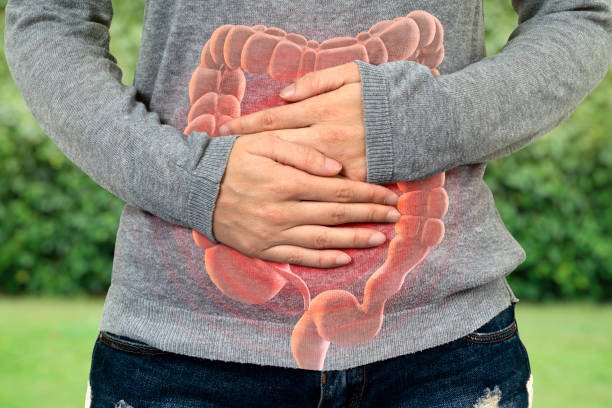In recent years, Americans have become more health-conscious, particularly when it comes to their gut-health. Digestive wellness has moved from a niche topic to a mainstream health trend, as people are becoming aware of its profound impact on overall well-being. From diet changes to the use of supplements, Americans are increasingly focusing on their gut health. This article will dive into the growing focus on digestive wellness in the U.S. and explore how it is benefiting individuals physically and mentally.
The Rising Importance of Gut Health
Gut health is more than just about digestion. The gut, often referred to as the “second brain,” plays a key role in many bodily functions. It influences everything from immune system function to mental health. As research in the field of microbiomes (the collection of bacteria, viruses, fungi, and other microorganisms living in the gut) continues to grow, more people are discovering the important link between their gut and overall health.
1. What is Gut Health?
- The gut includes the stomach, intestines, and the microbiota (good bacteria) that live inside.
- A healthy gut is one that balances beneficial bacteria and supports proper digestion and nutrient absorption.
2. Gut-Health and the Microbiome
- The microbiome contains trillions of microorganisms that help break down food, produce vitamins, and protect the body from harmful bacteria.
- A balanced microbiome is essential for good gut health, influencing everything from mood to immunity.
3. The Role of Diet in Gut-Health
- Diet plays a pivotal role in maintaining a healthy gut. Foods rich in fiber, prebiotics, and probiotics support the growth of beneficial bacteria.
- Highly processed foods, sugar, and low-fiber diets can disrupt the gut microbiome and contribute to digestive issues.

Americans’ Growing Awareness of Gut-Health
The gut-health revolution in the U.S. can be attributed to several factors. With rising awareness about the importance of wellness, many individuals are seeking ways to improve their gut health through lifestyle changes. Additionally, the accessibility of information through social media and health blogs has played a significant role in this shift.
1. The Role of Social Media and Health Influencers
- Influencers and health experts on platforms like Instagram and TikTok have educated audiences about the importance of gut health.
- Hashtags like #GutHealth, #DigestiveWellness, and #HealthyGut have gained millions of views, prompting a surge in interest.
2. The Influence of Health-Related Documentaries and Books
- Documentaries like “The Gut: Our Second Brain” and books like “The Gut Health Diet Plan” have shed light on the science behind gut health, fueling a desire for better digestive wellness.
3. Health Campaigns and Media Coverage
- As gut health becomes a key topic in health and wellness media, more people are learning about its importance in maintaining overall health.

How Americans Are Boosting Their Gut Health
Many Americans are now actively taking steps to improve their digestive health, from dietary changes to adding supplements to their daily routines. This proactive approach is transforming how people think about wellness.
1. Incorporating Probiotics and Prebiotics into Diets
- Probiotics: These are live microorganisms found in fermented foods like yogurt, kefir, and kimchi that support the growth of healthy gut bacteria.
- Prebiotics: These are fiber-rich foods like garlic, onions, and bananas that fuel the growth of good bacteria in the gut.
2. Gut-Friendly Diets
- The Mediterranean Diet, high in fruits, vegetables, whole grains, and healthy fats, is increasingly popular for its gut-health benefits.
- Gluten-free and dairy-free diets are also common choices for individuals with gut sensitivities or conditions like IBS (Irritable Bowel Syndrome).
3. Gut Health Supplements
- Digestive enzymes, fiber supplements, and probiotic capsules are among the most popular gut health supplements in the U.S.
- These supplements aim to improve digestion, reduce bloating, and support the growth of healthy gut bacteria.
4. Hydration and Its Impact on Gut Health
- Drinking plenty of water is crucial for maintaining the health of the digestive system.
- Staying hydrated helps prevent constipation and supports the movement of food through the digestive tract.

The Benefits of Improved Gut Health
By focusing on gut health, Americans are experiencing numerous benefits, both physically and mentally. The benefits extend far beyond digestive comfort, leading to improvements in immune function, mood, and even skin health.
1. Enhanced Digestive Comfort
- Many individuals report fewer issues with bloating, gas, and indigestion after focusing on improving their gut health.
2. Boosted Immune System
- About 70% of the body’s immune cells are located in the gut, meaning a healthy gut leads to a stronger immune system and a reduced risk of infections.
3. Better Mental Health
- There’s growing evidence suggesting that gut-health is directly linked to mental health. A well-balanced microbiome can improve mood, reduce anxiety, and may even help with conditions like depression.
- The “gut-brain axis” refers to the communication between the gut and the brain, and it shows that gut health can influence mental well-being.
4. Improved Skin Health
- A healthy gut can contribute to clear, glowing skin. Conditions like acne, eczema, and rosacea have been linked to an imbalance in the gut microbiome.
- By improving gut health, many people have reported noticeable improvements in their skin.
5. Weight Management
- A balanced gut microbiome plays a role in regulating metabolism and body weight.
- Some studies suggest that an unhealthy gut may contribute to weight gain and obesity, while a healthy gut can help with weight management.
Challenges to Maintaining Gut Health
Despite the growing interest in gut health, many people face challenges in maintaining it. Poor dietary habits, stress, and the modern lifestyle can all negatively impact the gut. Here are some common obstacles:
1. The Impact of Stress
- Chronic stress can have a negative effect on the gut microbiome, leading to digestive issues such as bloating, diarrhea, or constipation.
- It’s important to incorporate stress-relieving activities like yoga, meditation, or regular exercise to maintain gut health.
2. Processed Foods and Unhealthy Diets
- A diet high in processed foods, sugar, and unhealthy fats can disrupt the balance of gut bacteria, leading to digestive problems.
- Americans are increasingly aware of the need to reduce their consumption of these foods for the sake of their digestive health.
3. Lack of Exercise
- Regular physical activity is essential for promoting gut health. Exercise helps stimulate digestion and supports a healthy balance of gut bacteria.
4. Antibiotic Use
- While antibiotics are important for treating infections, overuse can disrupt the gut microbiome by killing off both harmful and beneficial bacteria.
- It’s essential to only take antibiotics when prescribed and to consider probiotics after a course of antibiotics.
The Future of Gut Health
The growing interest in gut health is just the beginning. As more research is conducted and people become increasingly aware of the benefits, the focus on digestive wellness will continue to rise. We can expect to see more innovative products, such as personalized probiotics and gut health testing kits, entering the market.
1. Personalized Gut Health Plans
- Advances in technology may allow for more personalized gut health strategies, including tailored probiotics and diet plans based on individual microbiomes.
2. The Rise of Gut Health Apps
- Smartphone apps that track diet, digestion, and lifestyle choices are expected to become more popular in helping people monitor and improve their gut health.
Conclusion
The gut-health revolution in the United States shows no signs of slowing down. With the increasing awareness of its importance, more Americans are taking steps to improve their digestive wellness, resulting in a healthier and happier society. By adopting better eating habits, using supplements, and managing stress, individuals are unlocking a host of benefits that not only improve digestion but enhance overall health and well-being. The future of gut-health is bright, with more innovations on the horizon to help individuals better understand and care for their digestive systems.
Rise of A I Therapists: How Artificial Intelligence is Transforming Mental Health Care






